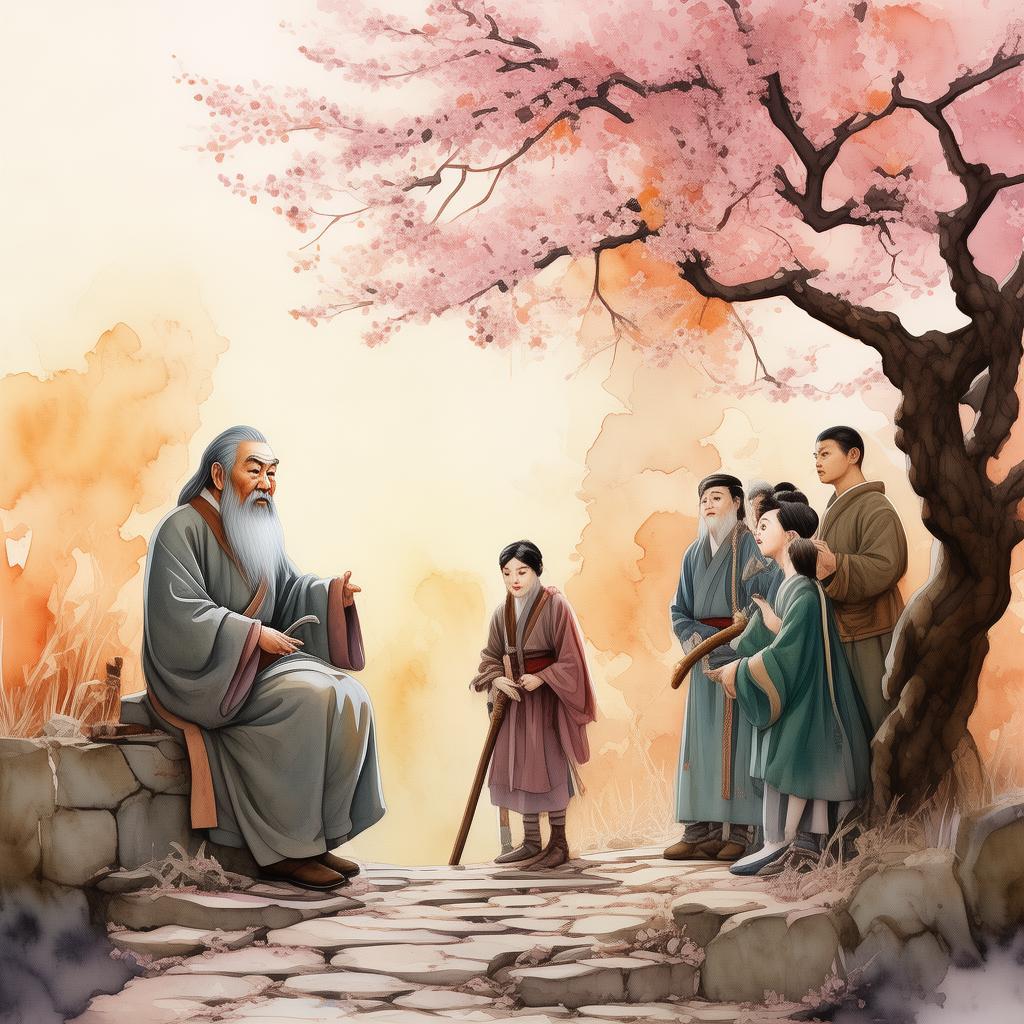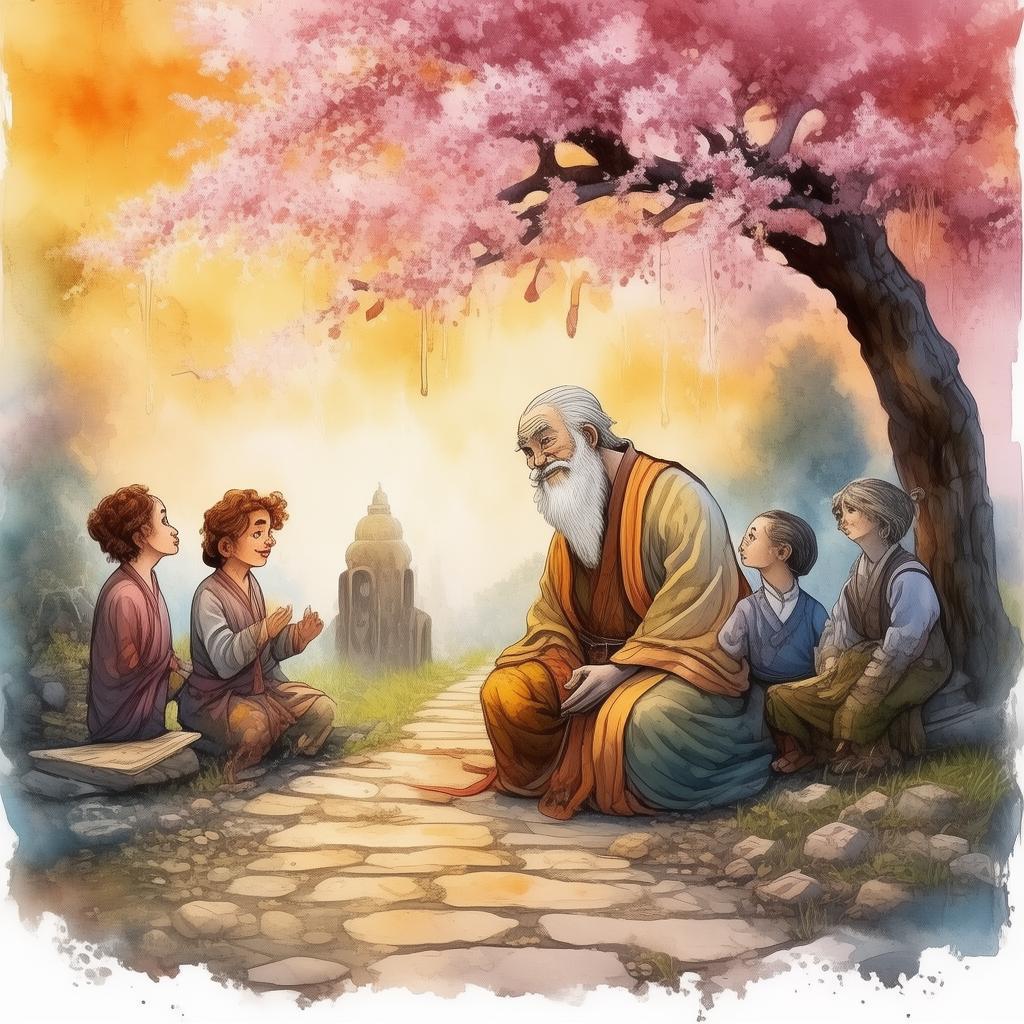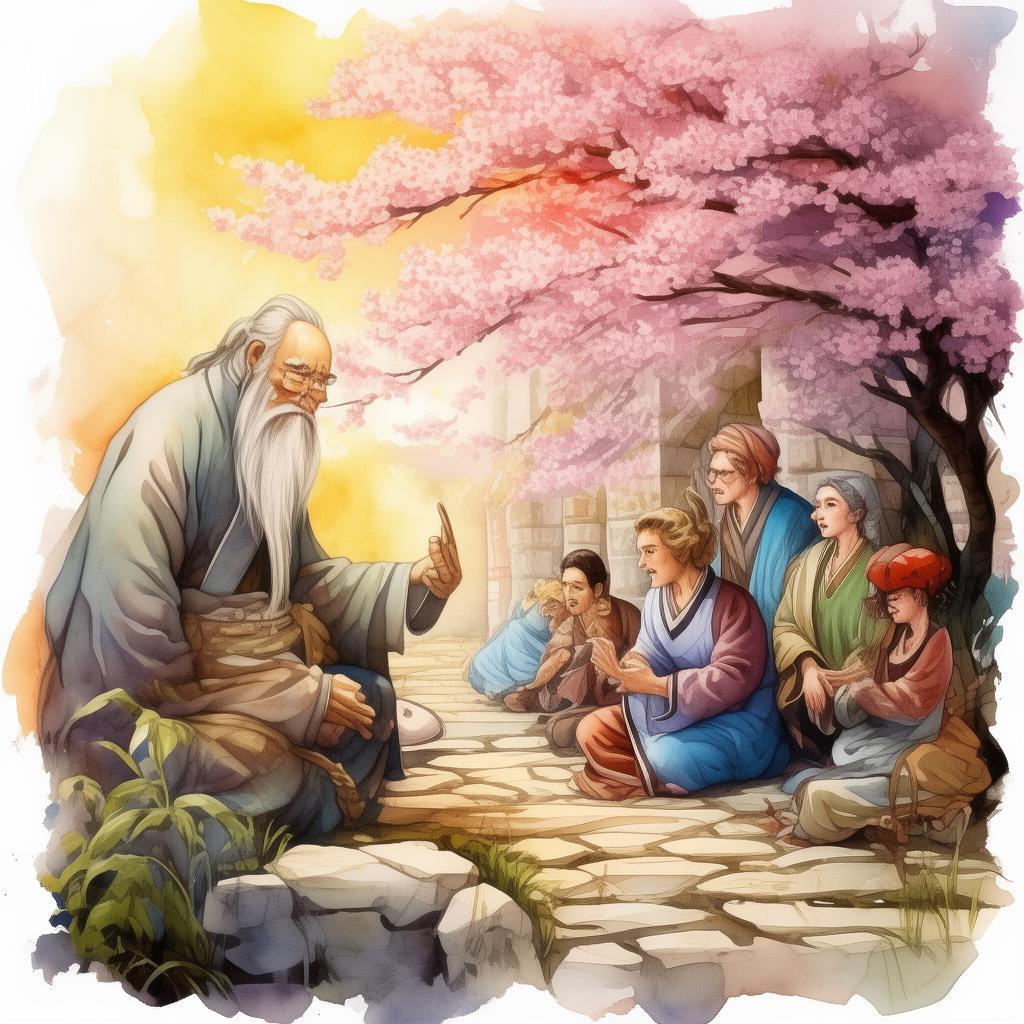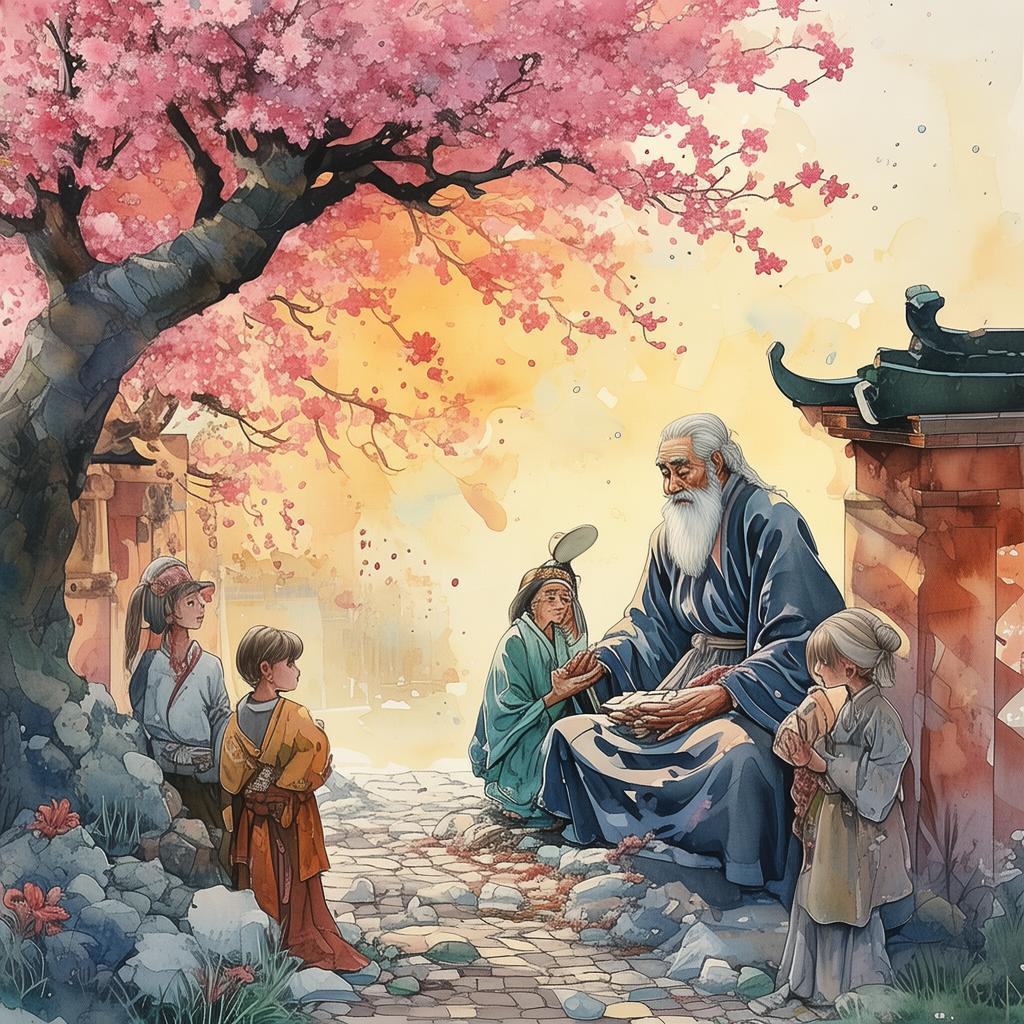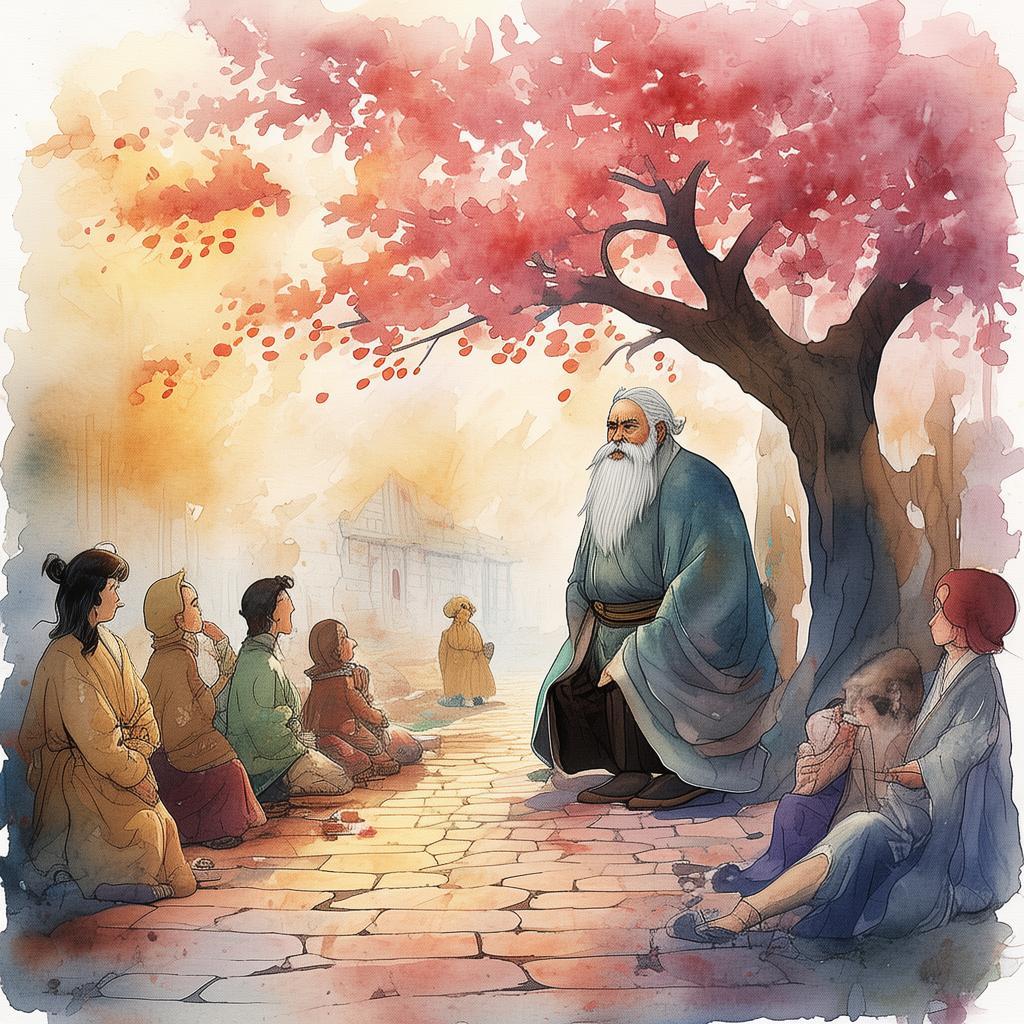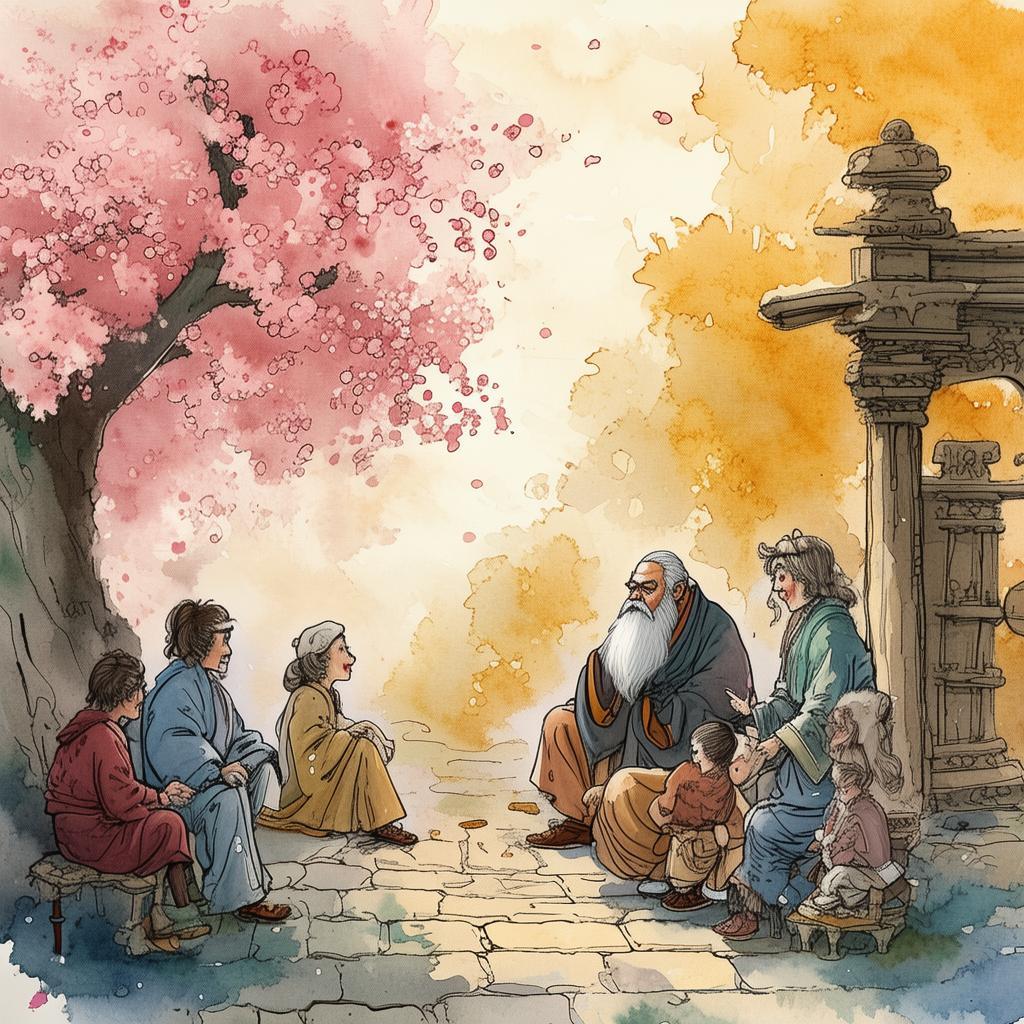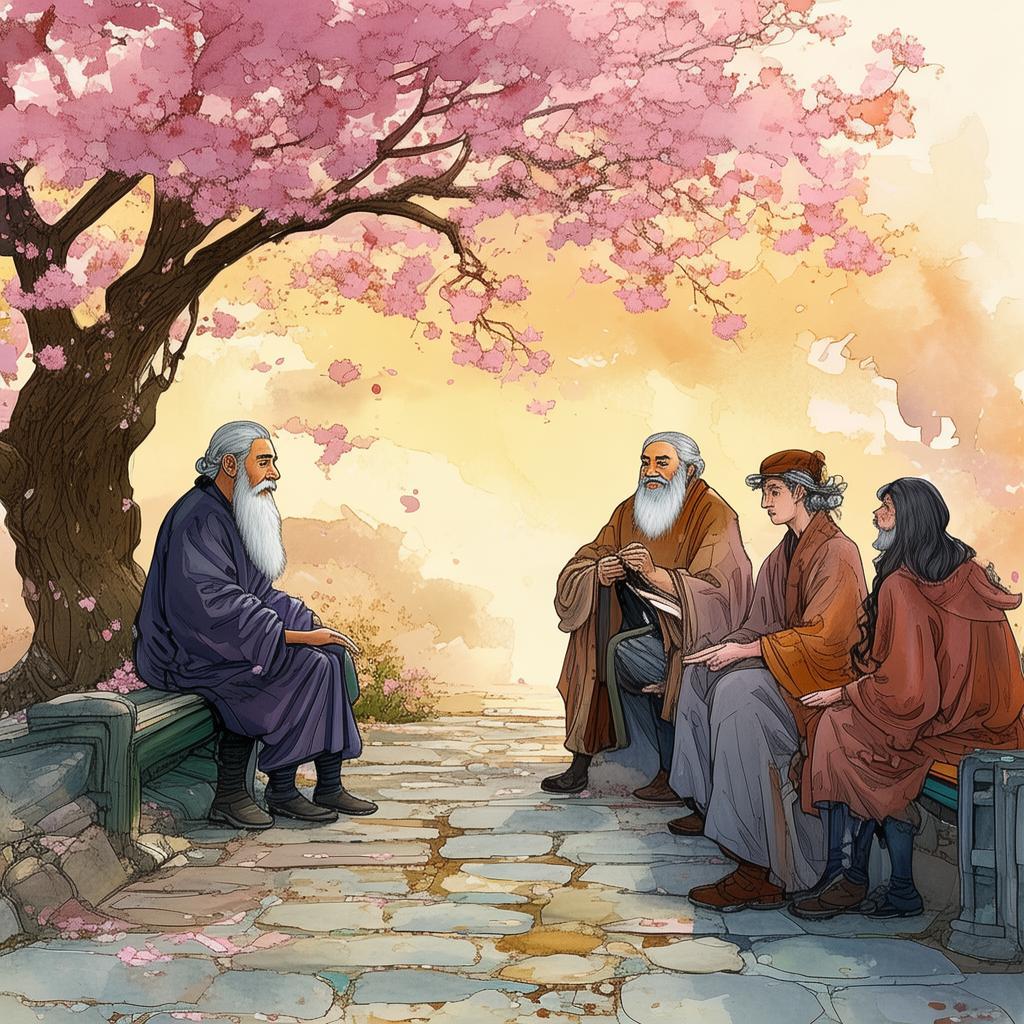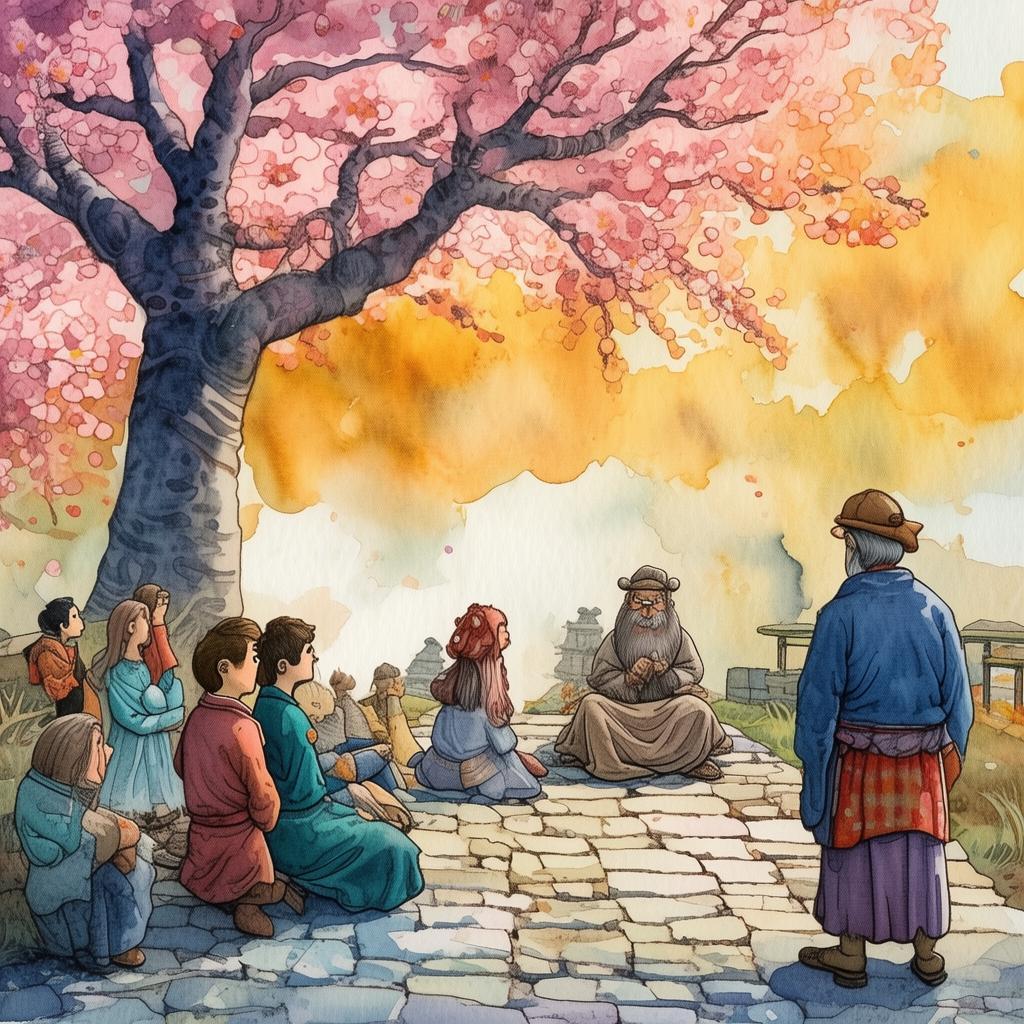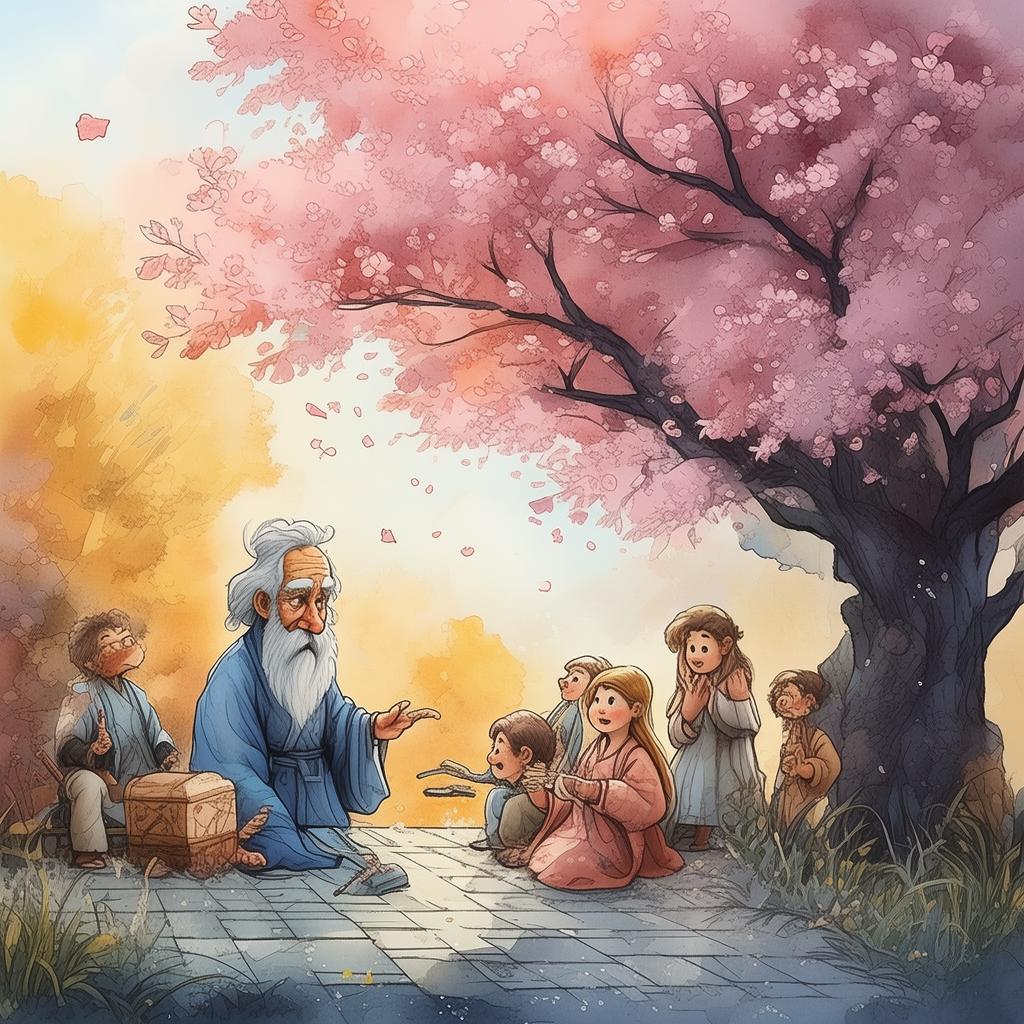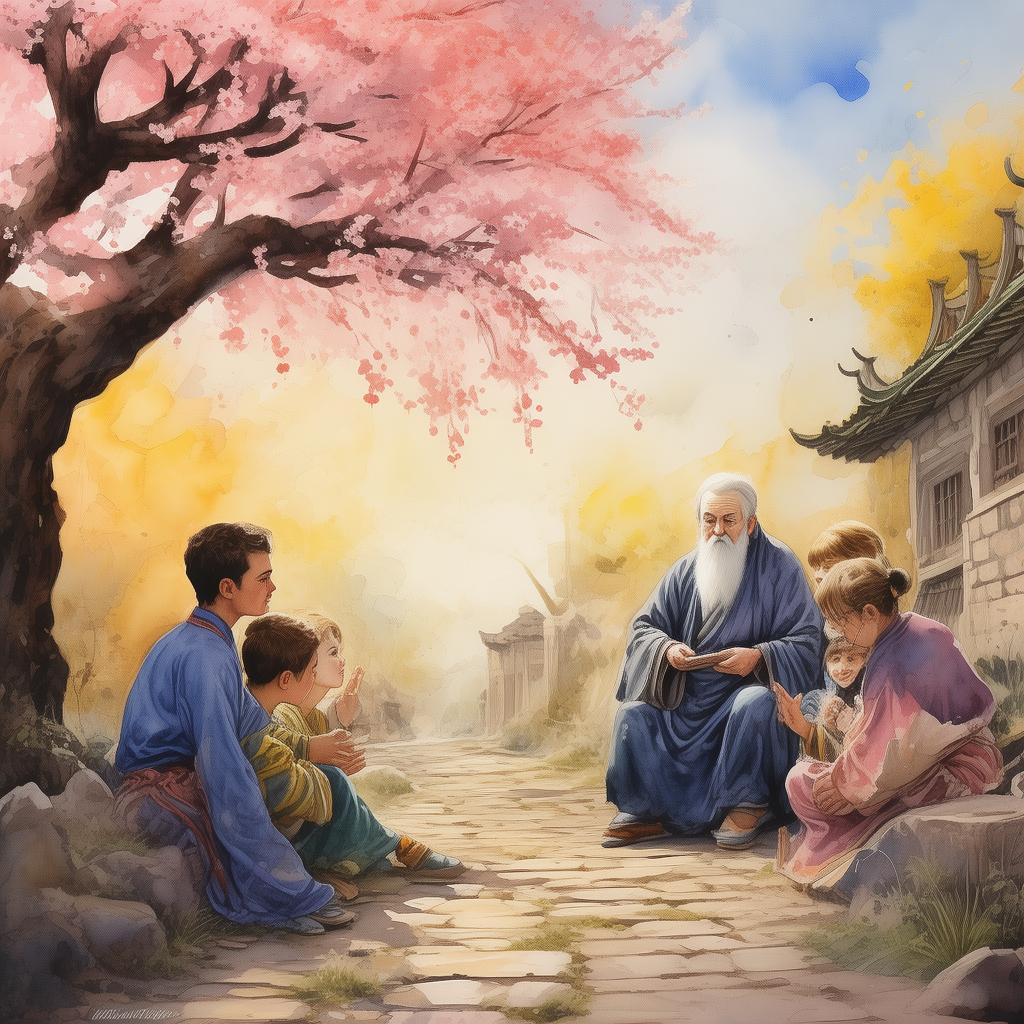The Scholar's Resourceful Rebirth: A Quest Beyond the Ivory Tower
In the heart of ancient China, there stood a majestic ivory tower, the pinnacle of scholarly pursuit and the beacon of wisdom. It was a place where scholars gathered, debates raged, and knowledge was revered above all. But as time waned, the tower's grandeur began to fade, and with it, the respect for the scholars who once resided within its walls.
In the shadow of the falling tower, there lived a young scholar named Ming. He was the son of a once-renowned philosopher, whose wisdom was as vast as the cosmos. Ming, however, found himself at odds with the times. The ivory tower, which had once been his sanctuary, now seemed like a relic of a bygone era. The scholars, once revered, were now dismissed as out-of-touch and irrelevant.
Ming's father, the philosopher, saw the decline of the ivory tower and foresaw the impending end of the scholarly world as he knew it. In his final moments, he imparted a profound truth to Ming: "The true scholars are not those confined within the walls of an ivory tower, but those who carry the torch of knowledge wherever they go."
With these words, Ming set out on a quest to prove his father's wisdom. He abandoned the comfort of the tower and ventured into the world, determined to spread enlightenment beyond the confines of the ivory tower.
His journey was fraught with challenges. The common folk, weary of the scholars' aloofness, were skeptical of Ming's intentions. They saw him as a renegade, a traitor to the scholarly tradition. Ming, however, was undeterred. He sought to understand the needs of the people, to learn from their experiences, and to apply his knowledge to improve their lives.
One day, Ming came upon a village beset by a mysterious illness. The villagers were dying, and the local healers were at a loss. Ming, though not a healer by trade, knew that his knowledge of herbs and natural remedies could be of use. He set to work, studying the plants around him, and soon discovered a rare herb that could cure the illness.
The villagers were amazed at Ming's resourcefulness. They had never seen a scholar so willing to engage with their world, so eager to learn from it. Ming's actions began to change the perceptions of the common folk. They realized that the scholars were not out of touch but were, in fact, the keepers of invaluable knowledge that could be used to benefit all.
Ming's journey continued, and he encountered many more challenges. He faced the greed of merchants who sought to exploit the poor, the corruption of local officials, and the skepticism of scholars who believed that practical knowledge was beneath their dignity.
Yet, Ming remained undaunted. He believed in the power of knowledge to transform lives and to unite people. He traveled from village to village, teaching the people, healing the sick, and restoring hope to the downtrodden.
As word of Ming's adventures spread, the scholars of the fallen ivory tower began to take notice. They realized that the true legacy of their institution lay not in the tower itself but in the scholars who carried their wisdom into the world.
The scholars, once isolated and aloof, now sought out Ming. They wanted to learn from him, to understand how they could contribute to the world beyond the tower. Ming, in turn, welcomed them, teaching them that true scholarship was not about titles or prestige but about the impact one's knowledge could have on the lives of others.
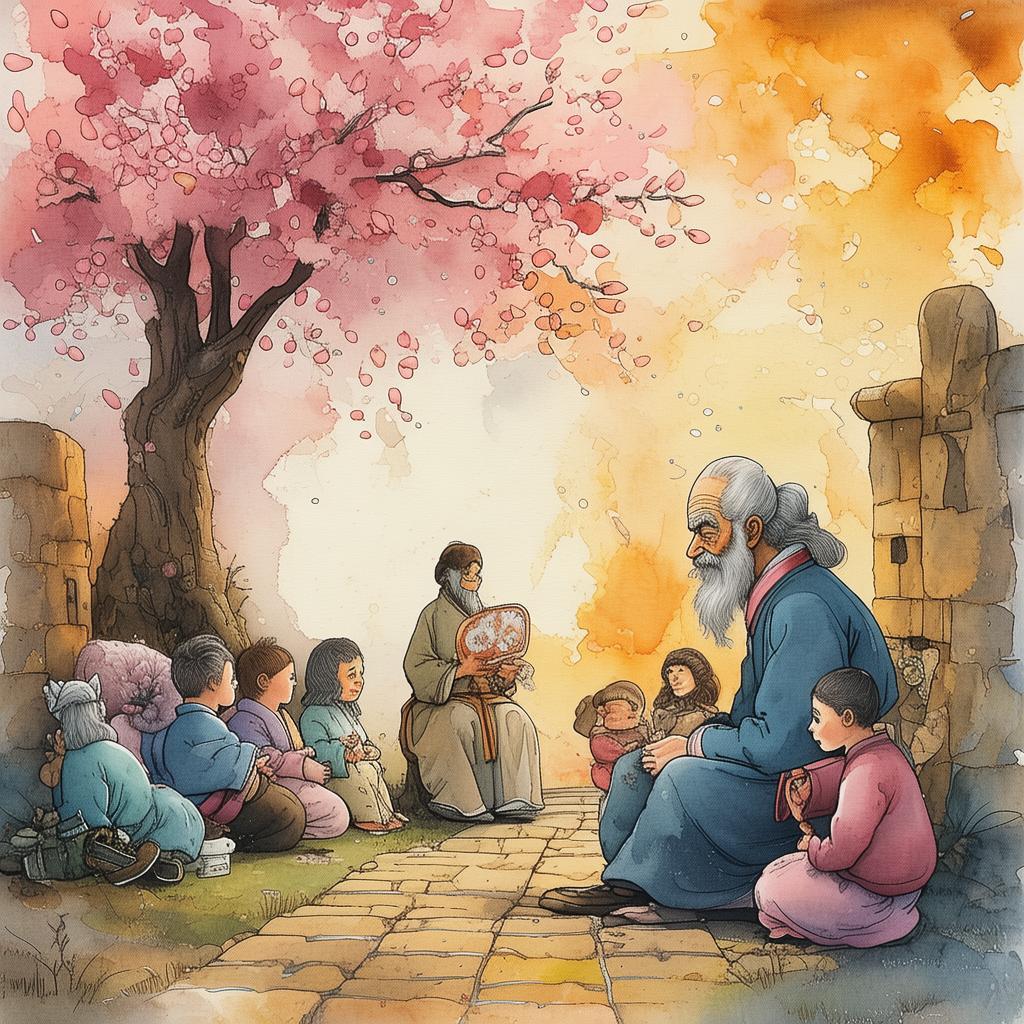
In the end, the ivory tower fell, but the spirit of the scholars was reborn. Ming, the resourceful scholar, had shown them that the true purpose of their knowledge was to serve and uplift humanity. The scholars, no longer confined to the tower, emerged as the architects of a new era, one where knowledge was accessible to all and where the pursuit of wisdom was a shared journey.
The story of Ming and the rebirth of the scholars is a testament to the power of resourcefulness and resilience. It teaches us that the true value of knowledge lies not in its possession but in its application. The fall of the ivory tower was not an end but a beginning—a rebirth of scholarship that would reach beyond the walls of the tower and into the hearts and minds of all who sought to learn and grow.
In the years that followed, Ming's teachings spread far and wide. The scholars, once confined to the ivory tower, became the wandering philosophers, the wandering healers, the wandering teachers. They traveled the land, sharing their knowledge, and in doing so, they brought about a renaissance of learning and understanding.
Ming, the son of the philosopher, had become a legend. His name was whispered in hushed tones, and his story was told and retold. The scholars, once dismissed as irrelevant, were now revered. They were the keepers of the flame, the guardians of the wisdom that could light the path to a better world.
And so, the story of Ming and the scholars serves as a reminder that the true scholars are not those who reside within the walls of an ivory tower, but those who carry the torch of knowledge into the world, ready to share their light with all who seek to learn.
✨ Original Statement ✨
All articles published on this website (including but not limited to text, images, videos, and other content) are original or authorized for reposting and are protected by relevant laws. Without the explicit written permission of this website, no individual or organization may copy, modify, repost, or use the content for commercial purposes.
If you need to quote or cooperate, please contact this site for authorization. We reserve the right to pursue legal responsibility for any unauthorized use.
Hereby declared.
